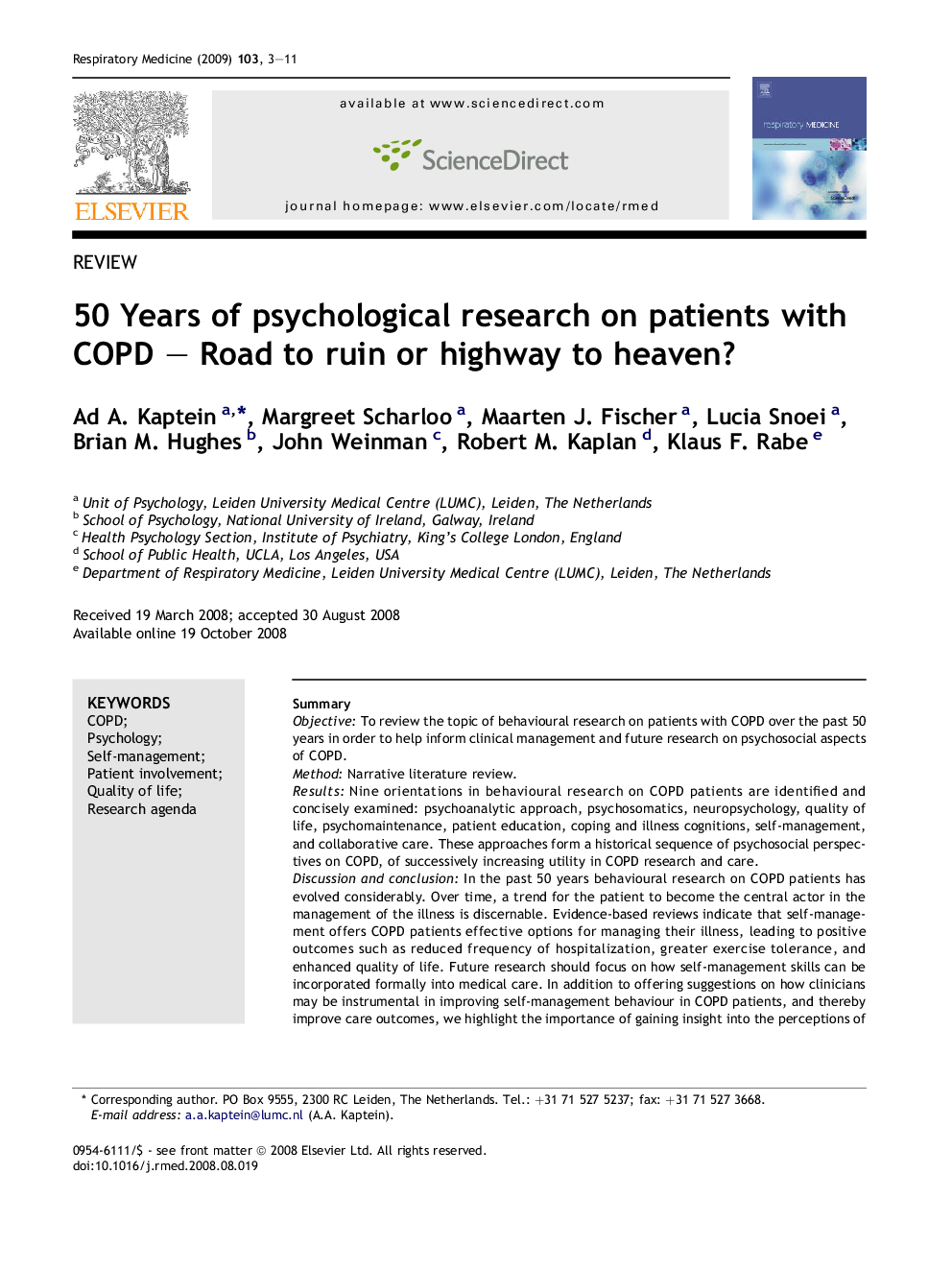| Article ID | Journal | Published Year | Pages | File Type |
|---|---|---|---|---|
| 4210977 | Respiratory Medicine | 2009 | 9 Pages |
SummaryObjectiveTo review the topic of behavioural research on patients with COPD over the past 50 years in order to help inform clinical management and future research on psychosocial aspects of COPD.MethodNarrative literature review.ResultsNine orientations in behavioural research on COPD patients are identified and concisely examined: psychoanalytic approach, psychosomatics, neuropsychology, quality of life, psychomaintenance, patient education, coping and illness cognitions, self-management, and collaborative care. These approaches form a historical sequence of psychosocial perspectives on COPD, of successively increasing utility in COPD research and care.Discussion and conclusionIn the past 50 years behavioural research on COPD patients has evolved considerably. Over time, a trend for the patient to become the central actor in the management of the illness is discernable. Evidence-based reviews indicate that self-management offers COPD patients effective options for managing their illness, leading to positive outcomes such as reduced frequency of hospitalization, greater exercise tolerance, and enhanced quality of life. Future research should focus on how self-management skills can be incorporated formally into medical care. In addition to offering suggestions on how clinicians may be instrumental in improving self-management behaviour in COPD patients, and thereby improve care outcomes, we highlight the importance of gaining insight into the perceptions of patients of their own situation, and incorporating a respect for patient perspectives into the philosophy of care.
